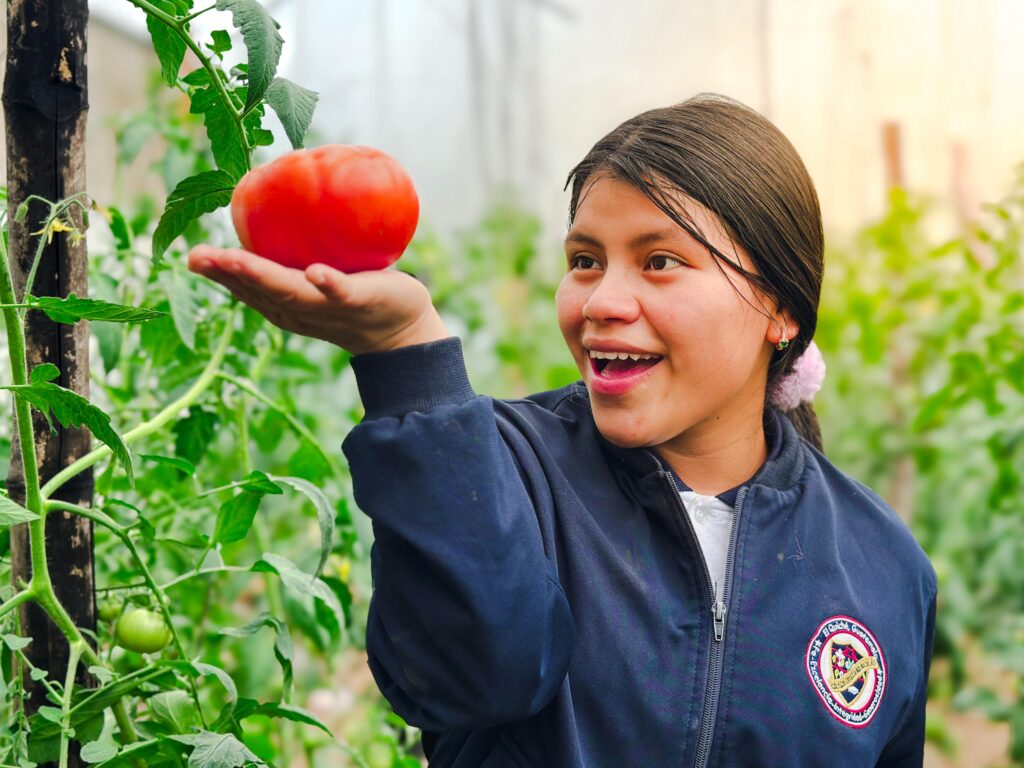
Nicolás Fund for Education has partnered with Agros International to launch an engaging program focused on agriculture and entrepreneurship. Through this initiative, students at Nicolás Christian School are gaining hands-on experience while learning essential agricultural skills.
Learning Through a Unique 10-Step Program
Students can take an elective class that combines theory and practical learning in agriculture and crop production. The lessons are guided by Agros employee Guillermo Chop Molina, who teaches theory, while students use digital coursework on their tablets. They also practice their skills in seven greenhouses located on the school campus. These greenhouses provide a pest- and disease-free environment for growing crops.
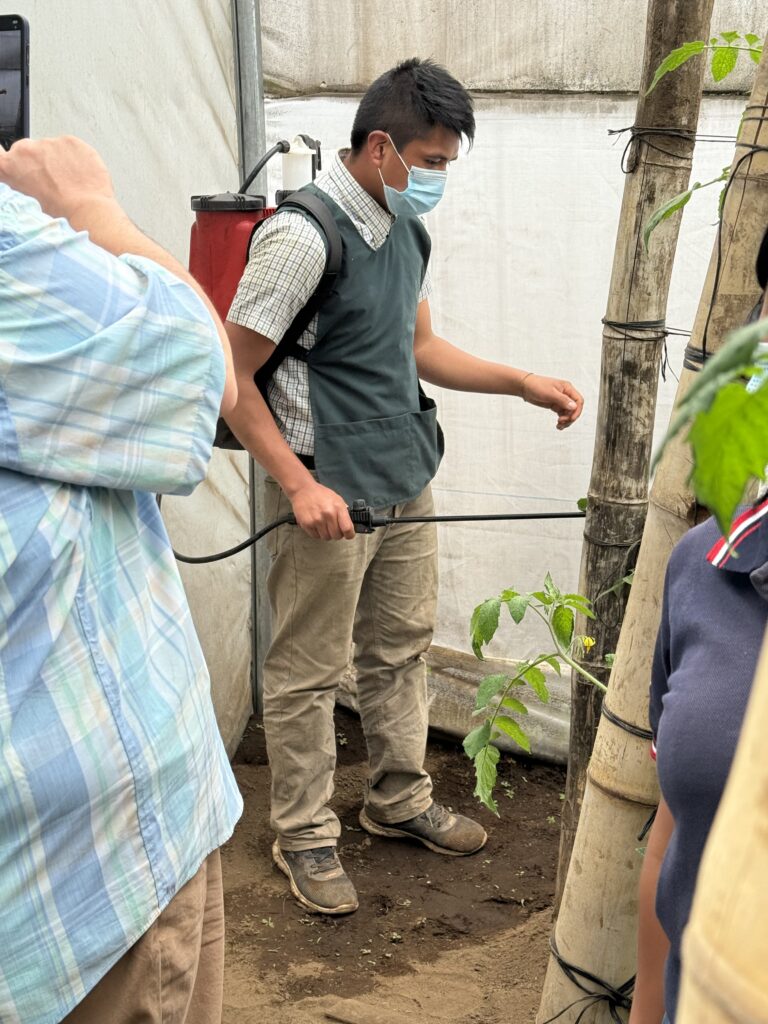
The curriculum covers lessons on using organic and biological pesticides, such as neem oil, to protect crops. Students also learn about beneficial fungi, such as mycorrhizae, which enhance soil health and help plants absorb water and nutrients. Additionally, they explore the five stages of crop growth—planting, development, formation of branches and leaves, flowering and fruiting, and finally, harvest.
Best Practices for Greenhouse Farming
To maintain a clean and controlled environment, students disinfect their shoes using trays filled with a dilute bleach solution before entering the greenhouses. The greenhouses are also designed with two-door entry chambers to keep insects out, and masks are used in some areas for added precautions.
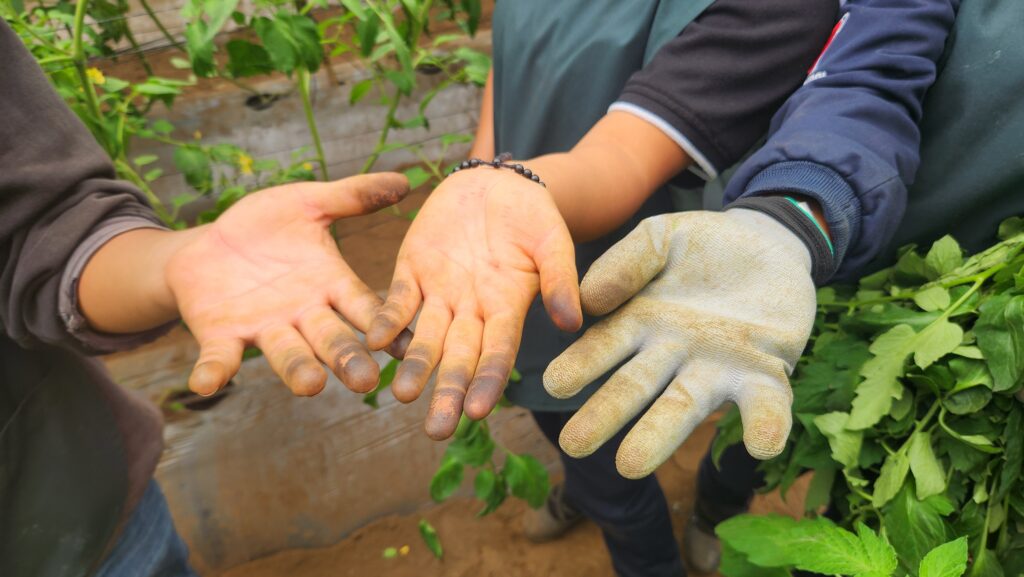
Students are actively involved in preparing soil, building plant supports with sticks and raffia twine, and setting up drip irrigation systems. Raffia twine is selected based on light conditions—black twine is used in the school’s sunny greenhouses to absorb light effectively. Black plastic mulch is spread over the soil to retain moisture, and an automated drip system supplies water and fertilizer evenly throughout the area.
Proper plant pruning is an essential skill they have learned. By removing old leaves and smaller fruits, students help the plant concentrate its energy on healthier, more substantial growth. They apply pruning techniques that prevent cross-contamination of tools, maintaining the plant’s health.
A special “control greenhouse” enables students to compare the outcomes of applying best practices versus not using them. This hands-on method helps them observe the direct effects of their efforts.
Tackling Challenges and Celebrating Successes
Students discovered that their greenhouses lacked enough insects for natural pollination and adapted by learning to hand-pollinate. They shake plants to distribute pollen effectively. To protect their produce during harvesting, they use plastic stacking totes that prevent bruising.
The program also teaches resource management—the greenhouses use harvested rainwater and spring water for irrigation. During droughts, water can be pumped from a nearby river.
One student, Ana Lily, shared that this program has deepened her understanding of biology and chemistry. Another student, Miguel Rodríguez, proudly declared, “These are MY plants!” Reflecting on their first planting attempt in February 2025, he admitted they made mistakes by not following instructions, which led to failed crops. However, he noted that learning from those mistakes motivated them to do better. Miguel has even shared some of these practices with his parents, who are farmers. His advice about fertilization has already helped improve his mother’s corn crops.
Impressive Results from Their Efforts
By the end of June, students harvested an impressive 700 pounds of Roma tomatoes from seeds planted in May. They tithe the first 10% of their crop, with 100 pounds sent weekly to the Nicolás Christian School kitchen. The harvest of chili peppers is scheduled for July and August.
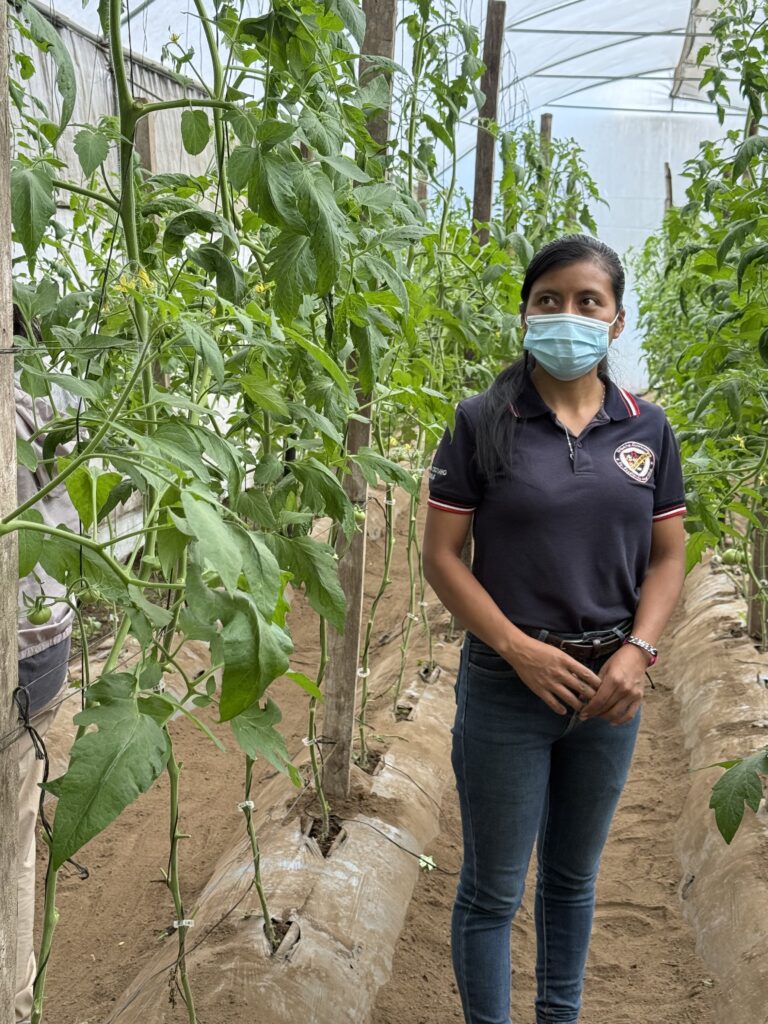
Ana Cordova Cedillo, the teacher in charge of the greenhouses, says she loves teaching agronomy. Ana herself was once ranked as the top snow pea farmer in the Ixil region. She shared that greenhouses are now being used in the village of San Felipe Chenla, expanding the impact of greenhouse farming as an accepted practice in the community.
The Benefits of Greenhouse Farming
Greenhouse farming provides many benefits. It enables all-year crop production by controlling environmental conditions, which increases yields and shields crops from pests and diseases. These techniques also make resource use more efficient, resulting in healthier, higher-quality produce and increased profits.
Expanding Educational Opportunities
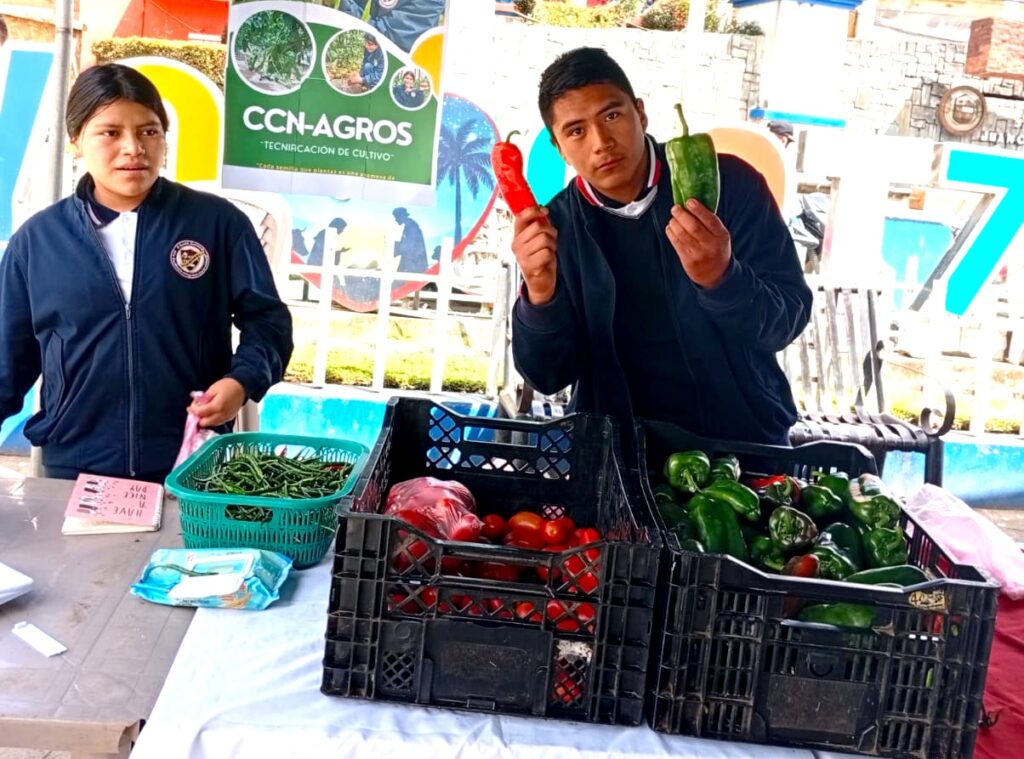
Students in grades 8 through 11 can enroll in this agricultural course, combining theory with practical work. After graduating, they can advance to a second part of the program, where they’ll earn an agribusiness certificate, opening up even more opportunities in the field.
Through this hands-on program, Nicolás Christian School is equipping students with valuable skills that will benefit them, their families, and their communities.
Join the Mission to Grow Futures and Communities
Inspired by the growth at Nicolás Christian School? You can help cultivate a brighter future for students and their communities. Your support empowers the next generation of leaders with invaluable skills in agriculture and entrepreneurship.
Here’s how you can sow seeds of opportunity:
- Donate to the Mission: Your financial support provides the tools, seeds, and resources students need to learn and thrive. Every gift helps this vital program flourish.
- Volunteer Your Talents: Join a mission trip to share your skills and witness the program’s impact firsthand. Your time and expertise can make a world of difference.
- Share the Story: Spread the word about this incredible initiative. Inspiring others to get involved helps us expand our reach and grow the harvest of hope.
Help us empower students to feed their families, build their communities, and grow their futures. Act now and be a part of this amazing transformation.

Comments 1
Pingback: A Community of Hope: How Local Support is Transforming Education in Guatemala - Nicolas Fund for Education